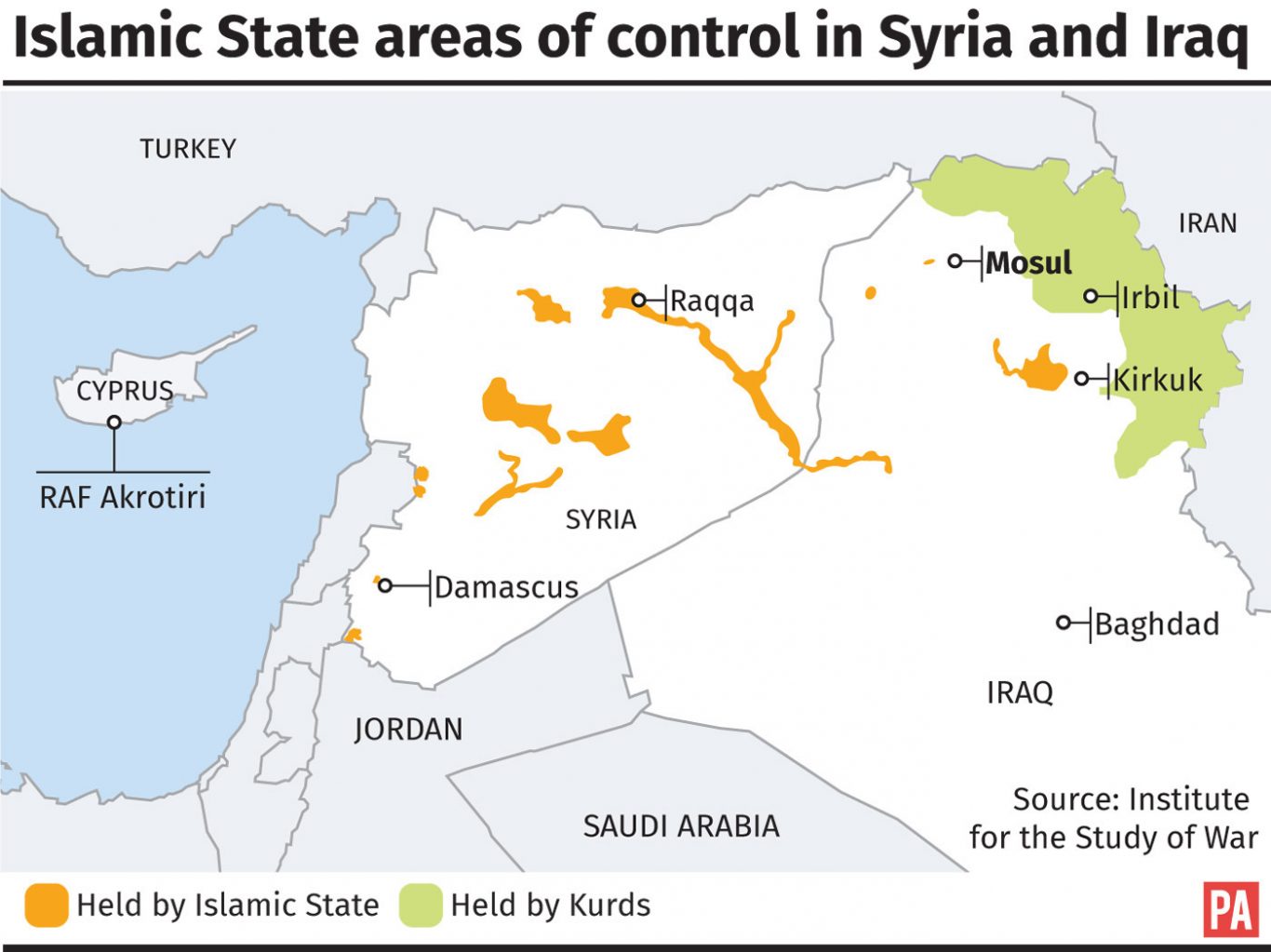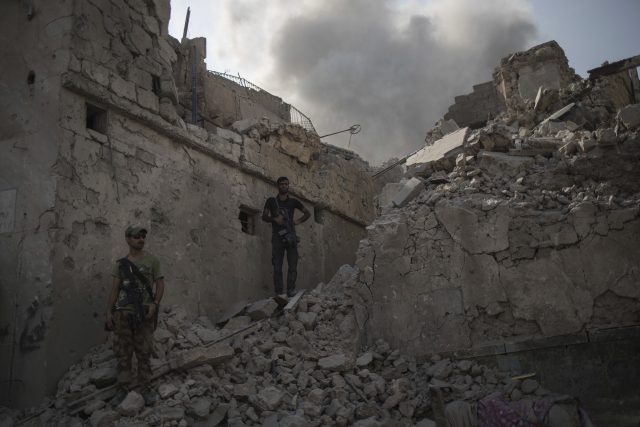Mosul battle ‘created civilian catastrophe’ amid IS atrocities
The Amnesty International report comes as sporadic clashes continue in the former Islamic State stronghold.

Amnesty International said the conflict in Mosul has created a “civilian catastrophe”, with Islamic State extremists carrying out forced displacement, summary killings and the use of human shields in the Iraqi city.
The human rights organisation’s report comes as sporadic clashes continue in the former IS stronghold, even after the Iraqi government declared a “total victory” over extremists in the city.
At least one air strike hit the Old City, the scene of fierce battles with IS, sending a plume of smoke into the air early on Tuesday.
Iraqi prime minister Haider al-Abadi declared “total victory” in Mosul on Monday evening after a nine-month-long conflict with IS fighters.

The fight dealt a huge blow to IS’s so-called territorial caliphate, but has also killed thousands, left entire neighbourhoods in ruins and displaced nearly 900,000 people from their homes.
The Amnesty report also detailed violations by Iraqi forces and the US-led coalition.
Lynn Maalouf, research director for the Middle East at Amnesty, said: “The scale and gravity of the loss of civilian lives during the military operation to retake Mosul must immediately be publicly acknowledged at the highest levels of government in Iraq and states that are part of the US-led coalition.”

The report, which covers the first five months of this year, noted how IS fighters moved civilians with them around the city, preventing them from escaping, creating battle spaces with dense civilian populations and “Iraqi forces and the US-led coalition failed to adapt their tactics”.
The Iraqi forces and the US-led coalition “continued to use imprecise, explosive weapons with wide area effects in densely populated urban environments”, Amnesty stated, adding that some violations may constitute war crimes.





